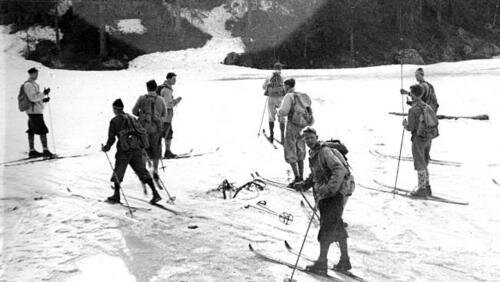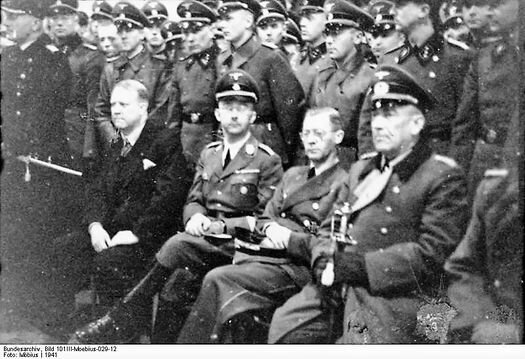Introduction to the Norwegian Resistance during WW2, Part II
 Resistance fighters on skis
Resistance fighters on skis When on 17 June 1940 France surrendered, hope that a strong Western Front had an answer to Hitler’s insatiable imperialism quickly evaporated in Norway. It was a black day for the Norwegians, who’d hoped for more battle power from their Allies despite their own defeat on 10 June.
Louder became the voices from within the country to seek a peace agreement with Germany and thus keep the hopes of an independent government. King Haakon and the government-in-exile in London should be removed from office for that matter. In the next three months Norway hovered on the brink of becoming Hitler’s proud Northern Star. If only the Germans had known how easy they could’ve realized this and had acted accordingly, the course of WW2 might have looked very differently.
But they hesitated due to the ease with which they’d taken possession of the “neutral country” and friendly Quisling licking their Nazi boots. Note: there had been some tough fighting during the Norwegian Campaign, such as the Battle of Hegra Fortress.
The press was gagged, workers were pressured to join the Nasjonal Samling and the first threats to critical voices emerged.
But both Quisling and the occupying force had not reckoned with the tenacity and independent spirit of the Norwegians. The young kingdom was proud of its King who refused to abdicate. It soon led to illegal appeals to support the King and the democratically chosen government. Small seeds of resistance were sown but in September 1940 a new blow awaited the opposition.
Some party groups refused to have a Nasjonal Samling member installed as Minister of Justice. That decision led to the Germans breaking off all negotiations and on 25 September Reichskommissar Josef Terboven (who would turn out to be one of the cruelest Nazis ever) took complete control of the government. All other political parties were banned and the tone was set for repression instead of collaboration.
However, it would take Vidkun Quisling until 1 February 1942 before he would become the honorary ‘Minister President’ though behind the scenes Terboven continued to call the tune all through WWII.
Repression inadvertently leads to rebellion. The voice of the Resistance could no longer be squelched. The fight would be hard and relentless and ultimately cost the lives of thousands of Norwegian patriots.
to be continued…
The culprits from left to right: Quisling, Himmler, Terboven and Von Falkenhorst
Preorder The Norwegian Assassin



